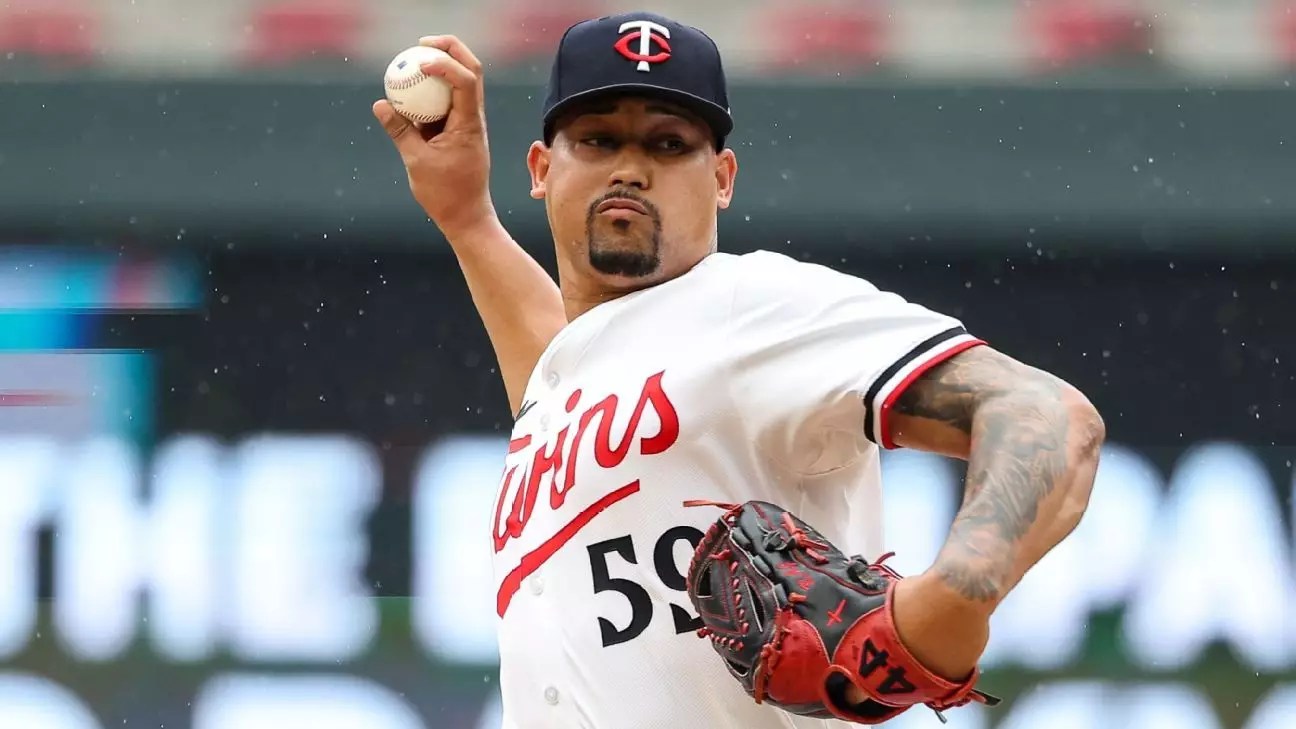In a high-stakes move that signals their championship aspirations, the Philadelphia Phillies have traded significant assets to acquire Jhoan Duran, one of the league’s most electrifying relievers. This decision underscores a clear shift in the team’s strategy, emphasizing the importance of bolstering their bullpen to contend for postseason glory. Duran’s arrival isn’t just about adding another arm; it’s about transforming the closing situation into a formidable weapon that can dominate late-game scenarios. With an arsenal featuring a blistering fastball averaging 100.2 mph and a deceptive mid-80s curveball, Duran possesses the tools to shut down opponents when stakes are the highest.
The Phillies’ management, led by baseball operations chief David Dombrowski, has shown an unabashed willingness to part with top prospects to address critical weaknesses. While some may criticize the price—an impressive package that includes top-tier prospects such as catcher Eduardo Tait and pitcher Mick Abel—the long-term vision appears to prioritize immediate success. This move clearly reflects the understanding that in baseball, especially in the postseason, having a reliable closer can often be the difference between falling short or clinching a title. Dombrowski’s reputation for aggressive, high-reward deals has been reaffirmed here, signaling to the rest of the league that the Phillies are all-in.
Addressing the Bullpen Crisis: From Flaws to Fortification
The Phillies’ bullpen has been a glaring weakness throughout the season, contributing to a series of blown saves and late-inning collapses. Despite having a potent starting rotation and a lineup loaded with power hitters like Bryce Harper and Kyle Schwarber, their relievers’ struggles have hampered their ability to close out games effectively. The effort to acquire Duran is a direct response to this vulnerability, recognizing that no matter how strong a team’s offense or starters are, a leaky bullpen can derail postseason dreams.
Adding Duran is also a strategic move to counterbalance the instability caused by other bullpen issues. For instance, Jordan Romano has underperformed since signing in the offseason, and Jose Alvarado’s 80-game suspension due to performance-enhancing drugs leaves a void that won’t be filled until August, leaving the team without a reliable closer during the most critical stretch of the season and potentially the playoffs. This uncertainty underscores the Phillies’ urgency and Dombrowski’s willingness to make bold gambles for immediate impact.
The consensus among managers and analysts is that Duran’s elite talent will transform the Phillies’ bullpen from a liability into a strength. Manager Rob Thomson’s comment about turning the bullpen into “a really good bullpen” reflects a confidence rooted in the addition of a proven, dominant closer. This acquisition is less about temporal benefits—since Duran isn’t a rental—but rather about crafting a sustainable, championship-ready unit capable of holding leads and controlling high-pressure situations.
Future Commitments and the Cost of Contention
One of the standout aspects of this trade is the Phillies’ willingness to sacrifice future potential in exchange for immediate results. Duran’s contractual control through 2027, with no sign of free agency looming until then, provides the Phillies not just a short-term boost but a long-term asset as well. This contrasts sharply with the trend of trading prospects for rentals; the Phillies are betting on their window of contention and believe that locking in a talented reliever now is worth the high cost.
Critics might argue that trading away prospects such as Tait and Abel, both with promising futures, can potentially weaken the team’s depth. Yet, Dombrowski’s history of making calculated sacrifices for proven talent demonstrates a philosophy rooted in winning now. The fact that the club refused offers involving highly regarded young pitcher Andrew Painter underscores their commitment to prioritize proven impact over unproven potential. Their willingness to pay a “tough price” reveals a team confident that this move will help them capitalize on their roster’s current window, especially with veterans like Schwarber and J.T. Realmuto nearing free agency.
Furthermore, the Phillies’ internal environment reflects a collective hunger to win. Schwarber’s optimism and the team’s aggressive pursuit of top-tier relievers indicate that Philadelphia is not content with merely competing; they want to dominate. Still, the trade also raises questions about sustainability and the organization’s long-term rebuilding strategy—questions that will depend on how well Duran performs under playoff pressure and whether their front office can continue making strategic decisions to complement this bold move.
—
This move marks more than a mere transaction; it’s a statement of intent. The Phillies are placing their chips on their desire to compete at the highest level by reinforcing their most critical weakness with a reliable, dominant closing arm. Whether this gamble pays off or not, it undeniably signifies their unwavering commitment to winning now, making it clear that their sights are set on nothing less than capturing a championship amidst fierce competition.

